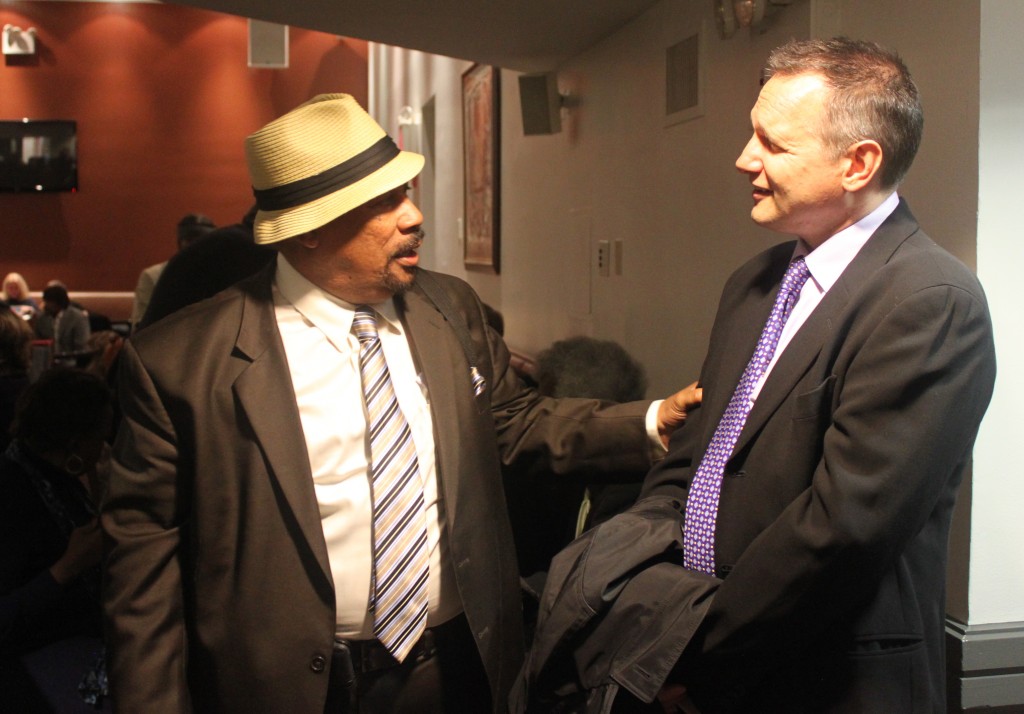Submitted for class on Dec. 5, 2012

Bobby Jay, a DJ and singer, and John Runowicz, an ethnomusicologist, talk doo-wop after the memorial service for Earl “Speedo” Carroll at the Abyssian Baptist Church in Harlem on Wednesday, Dec. 5. (Philippe Theise)
Members of the New York City doo-wop community gathered at the Abyssian Baptist Church in Harlem yesterday to remember Earl “Speedo” Carroll, the lead singer of The Cadillacs who also sang in The Coasters and worked as a long-time custodian at PS87.
“I imagine there may be a few people in here who can sing,” said Reverend Dr. Calvin O. Butts, III, before asking for help with “Amazing Grace” near the start of the service.
Attendees praised Carroll, whose primary group sang the 50s hits “Gloria,” “Down the Road,” and “Speedoo,” for his sartorial style, onstage dancing, and constant cheer.
Every time we saw him, there was a smile on his face, smile in his voice,” said Bobby Jay, a DJ and singer who first saw The Cadillacs perform at the Apollo Theatre in 1956.
“All you can do is say ditto,” said Barbara Toomer, an original member of 60s girl group The Toys.
In front of the chapel stage, there was an enlarged photograph of Carroll smiling in a mint green tuxedo jacket. In a photo at the luncheon downstairs, same smile, different jacket: tangerine.
According to John Runowicz, who served as musical director of The Cadillacs from 1987 to 2010 and wrote “Forever Doo-Wop: Race, Nostalgia, and Vocal Group Harmony,” Carroll’s band was a force in their genre.
“They were known as the closer. Nobody wanted to follow them,” he said.
In his eulogy, Reverend Butts used the main lyric from “Speedoo”—“Well now they often call me Speedoo / But my name is Mr. Earl”—to propose that Carroll’s celebrity was just one part of a well-lived life, which included over four decades as a husband and over two decades as a custodian at PS 87 on West 78th Street.
Butts also read lines from Langston Hughes’s 1940 poem about cultural theft and narrative reclamation, “Note on Commercial Theater,” to encourage young African-American audience members to research and tell the stories of African-American entertainers.
“Talk to the people who were there,” he said.
On this day, it was easy.
“This whole neighborhood is doo-wop,” said Donald Gatling, currently a member of Lisa and the Lovetones.
A few moments later, Gatling confirmed to a departing attendee that he would see him at rehearsal next Tuesday.